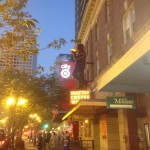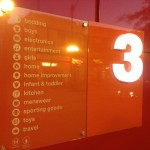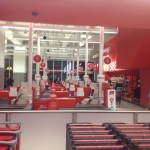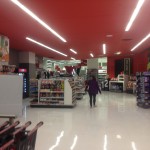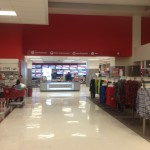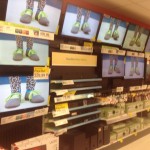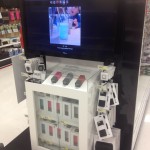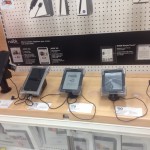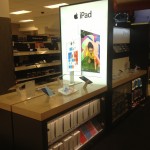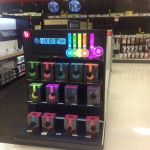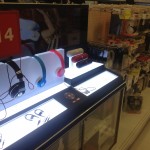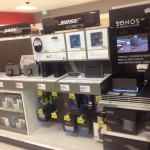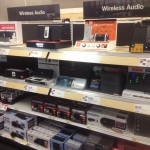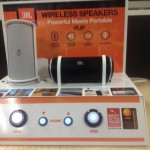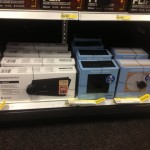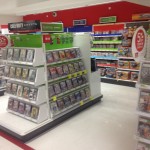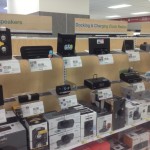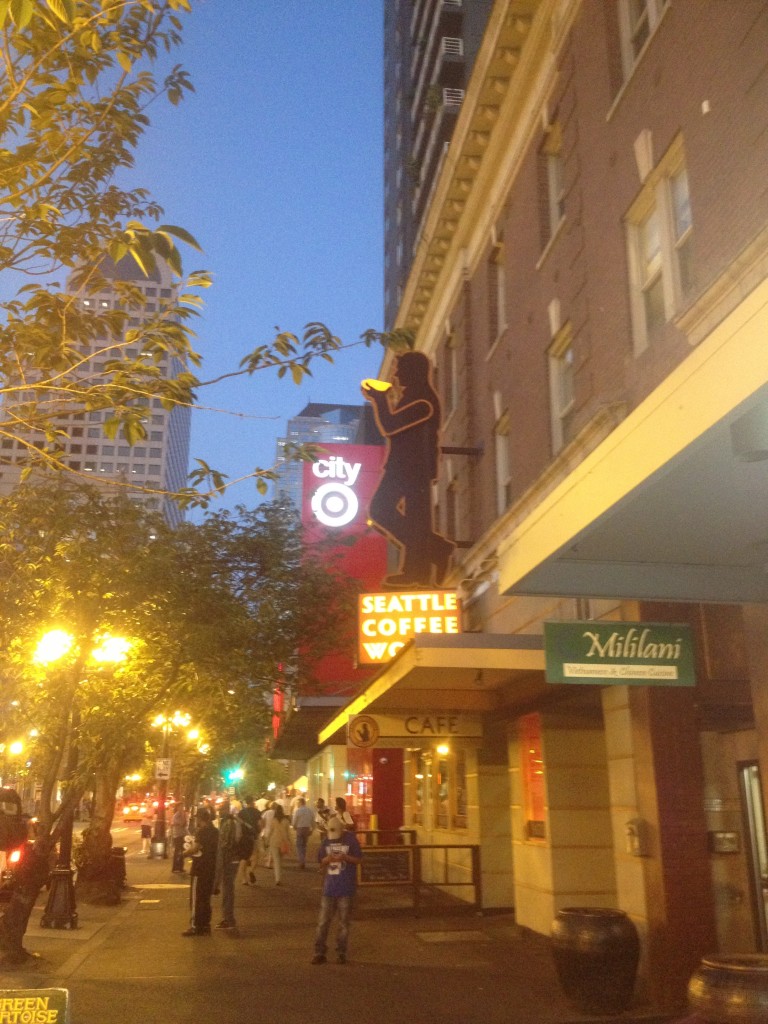
While in Seattle last week, I was able to visit the CityTarget between Union Street and Pike Street. Target announced their CityTarget initiative in the summer of 2012 and the first stores opened on July 25, 2012 in Seattle, Chicago, and Los Angeles. Stores in Portland, New York, and San Francisco would follow later that year. The Seattle store is incorporated into the bottom three-stories of an existing residential building. It is interesting to note that the story directory is actually hung outside the main door.
The average CityTarget is between 80K and 100K feet compared to the average Target store at about 135K square feet and the average Super Target at about 175K square feet. The suburbs have become saturated with retail and demographic shifts are driving both millennials and retirees into urban settings. As a result a number of retailers are responding to these shifts by moving to the city in search of growth. Their approach is often small footprint stores, lower shelf heights, and simpler in-store signage. These are driven by consumer demands to be quick stops. Retailers are also highly customizing their product assortment based upon the narrow radius that they likely serve. The Seattle CityTarget for example is in a residential area that also has a high concentration of tourist traffic. As a result, some of the first products I encountered in entering the store were Seattle-related souvenirs.
You enter the CityTarget at the street level where the checkout aisles are. I didn’t spend much time exploring the full store, but instead proceeded to the third floor where the electronics section was housed. Here are a few things I noticed:
- Obviously like the rest of the store, the electronics footprint was smaller than that of a regular Target
- The section appeared to be staff by two dedicated sales associates
- There was a greater assortment of mobile/portable devices
- Many of the items appeared to be lightly stocked compared to what one might expect at a full Target. Probably not surprising. But it felt some of the items were stocked just enough to satisfy impulse replacement purchases or perhaps to show “in-stock” in online checks for consumers checking online
- I received Lytro through my pre-order when it first launched. I haven’t tracked its retail presence and was surprised to see Lytro not only stocked but also occupying an endcap. I wouldn’t be totally surprised to see this at a traditional Target, but was surprised to see it in a CityTarget
- I probably didn’t get enough photos, but there was a pretty large assortment of cases and other accessories
- The camera section was actually much larger than I thought it would be – especially given the weakness the category is currently experiencing. This could be to catering to the tourist traffic.
- The demo areas mostly worked well. There were several audio-related demo areas (soundbars and blue-tooth speakers).
- Screen sizes for the TV assortment were definitely on the small-end given where TV sales are currently tracking and the size segments experiencing the most rapid growth this year. It might make sense that an urban location would stock “smaller” screen sets but this is likely supported by sales data over the last year from this specific location. With 50″+ TVs experiencing the strongest grow rates this year it would be difficult to not run with that and stock larger screen sets but the store appears to have made an explicit decision.
- Headphones continue to do well – especially models at $100+. Beats new neon MIXR models commanded an endcap and an entire aisle was dedicated to headphones.
- Apple had strong presence – especially given the small footprint of the entire electronics area.
- The other large area within the electronics section was the audio category. Bose had a large presence as did Sonos. There was dedicated space to speakers, clocks, and docks. I would expect small household appliances to do well in urban stores and docks and clocks seem to fit this mold well.
- There was a relatively large number of wireless audio options. I expect this category specifically to be one of the big winners over Holiday 2013.

